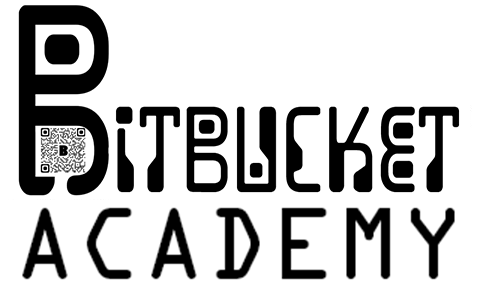-
Technology Programs Portfolio
Bitbucket Academy is an on-line education system for technology subjects: Computer Science, Cybersecurity (either Infrastructure Security or Applications Security,) DevOps, and Project Management. The program title and course numbers in each of the Program Pathway documents are links to the Course Outline of Record (CoR). The CoR gives you detailed information about the contents of each course, course objectives, and learning outomes. You can self-enroll in select, self-paced courses for personal enrichment or professional development. You may also co-enroll with Merritt Community College or through the California Virtual Campus to earn an accredited, internationally-recognized degree or certificate. Download the Computer Science Advisory Guide for detailed course and software developer career information. Several courses have a YouTube playlist of tutorial videos on the Bitbucket Academy channel to help you succeed in the course. Each playlist corresponds to a specific course. Be sure to subscribe to the channel so you don't miss any of the latest updates.
Earning an Associate in Science (AS) degree or a Certificate of Achievement (CA) through co-enrollment with Merritt College qualifies you to enter occupations with job titles listed in the table below. The table shows the San Francisco Bay Area salary for each occupation provided by the Centers of Excellence for Labor Market Information. The cost for completing a Certificate of Achievement (30 units) or an Associate in Science Degree (60 units) is also listed. The Economic Impact Multiplier shows how each dollar spent on a degree or certificate is multiplied in your annual compensation. Each AS degree or Certificate can be completed in four (4) semesters. Each job title is a link to the appropriate career search on a job board.
Program Costs*, Job Titles, Salary, and Economic Impact Multiplier Program Link Award Num. Units Enrollment Cost* Link to Typical Job Title and Roles Median Hourly Wage Median Annual Salary Economic Impact Multiplier Computer Science AS 60 $3,008 Software Developer $101 $210,080 70 Computer Science CA 32 $1,720 Software Developer $101 $210,080 122 Cybersecurity - Application Security (Software) AS 60 $3,008 Information Security Analyst $83 $172,640 57 Cybersecurity - Application Security (Software) CA 30 $1,628 Information Security Analyst $83 $172,640 106 Cybersecurity - Infrastructure Security (Hardware) AS 60 $3,008 Information Security Analyst $83 $172,640 57 Cybersecurity - Infrastructure Security (Hardware) CA 30 $1,628 Information Security Analyst $83 $172,640 106 DevOps AS 60 $3,008 DevOps Engineer $67 $140,000 47 DevOps CA 38 $1,996 DevOps Engineer $67 $140,000 70 Computer Project Management CA 12-21 $1,214 Computer and Information Systems Managers $68 $141,440 117
*The California Promise Grant may cover program enrollment cost for eligible students.
This Labor Market Information is NOT a guarantee of job placement or salary.
University Transfer is Available When Co-Enrolled for Credit with Merritt College
California State University (CSU) transfer: View a list of CSU transfer courses for Baccalaureate programs in CIS and Computer Science. The Merritt Program fulfills the first two (2) years of the Computer Science Bachelor of Science Degree at CSU Northridge campus.
University of California (UC) transfer: View list of UC transfer courses for Baccalaureate programs in CIS and Computer Science.The Merritt Program fulfills the first two (2) years of the Computer Science Bachelor of Science Degree at the UC Riverside campus.
California PolyTechnic (CalPoly) transfer: The Merritt Program fulfills the first two (2) years of the Computer Science Bachelor of Science Degree at the CalPoly San Luis Obispo campus.
Site announcements
Skip available courses
Available courses
The National Cyber League (NCL) is one of several Ethical Hacking Challenges that reflect Knowledge Skills and Abilities (KSA) that are sought after by independent professionals, entrepreneurs, and Security Operations Centers (SOC) around the world. This course supports development of these KSA.
Software Architectures and Algorithms is the second transfer level course in the Computer Science major. Where the first course addressed control structures, objects, fundamentals of program design, and fundamentals implementation, this course introduces you to the existing Body of Knowledge (BOK) in data structures, algorithms, debugging, testing, and integration of your code with existing software frameworks. This combination of well understood data structures and well tested algorithms enables you to focus on placing the software you create into an architecture that supports correct operation and meets performance goals.

Design and development of large programs: Systematic data abstraction,
strongly typed data and data structures, object declaration models,
inheritance and polymorphism, information hiding, managed frameworks and
libraries such as the Standard Template Library (STL), object life
cycles and garbage collection, recursion, well-defined algorithms,
collections and iterator abstraction, strategies for code re-use,
testing, UML and software engineering principles.
- Teacher: Courtney Brown
- Teacher: Courtney Brown
An analysis of technologies for connecting computers and computer
related devices into networks. This course covers the terminology and
the major components of networks: architecture, topologies, hardware
components, connections, protocols, network operations, network
administration, support, and troubleshooting. Wide Area Networks (WANs)
are also covered. Follows the objectives of the CompTIA Net+
certification exam.
CSU
Requires an additional 2 hours. Preparation for CompTIA Network+
certification exam.
ADVISE: CNIT 100 or 101.
Fundamental principles of Information Technology Security and Risk Management: Hardware software processes communications applications and policies and procedures of organizational cyber security and risk management.
NICE Framework ConnectionsMost software products are created using automated build systems. These systems build software whenever any code or data is changed and deliver the latest version of an application. This course teaches you about these continuous delivery systems and how to use them to automatically perform build, integration, and deployment on a continuous basis.


